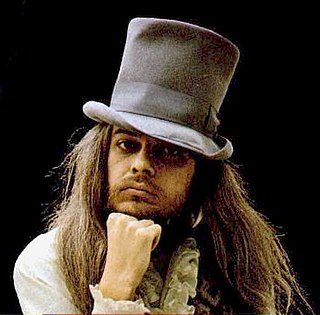A Quote by Yuna
I come from a jazzy, acoustic, folky background. Everything has to work with melodies; the words have to have meaning.
Quote Topics
Related Quotes
Acoustic ecology is the study of information systems: the shared acoustic environment and how species send and receive messages in this shared acoustic environment. What these messages mean - meaning, what are the consequences and the changes of behavior in any species. And it has as much to do with us individually and biologically as it does with the shaping of cultures and beliefs.
Jim had melodies as well as words. He didn't know how to play a chord on any instrument, but he had melodies in his head. To remember the lyrics he would think of melodies and then they would stay in his head. He had melodies and lyrics in his head, and he would sing them a cappella, and we would eke out the arrangements.




































